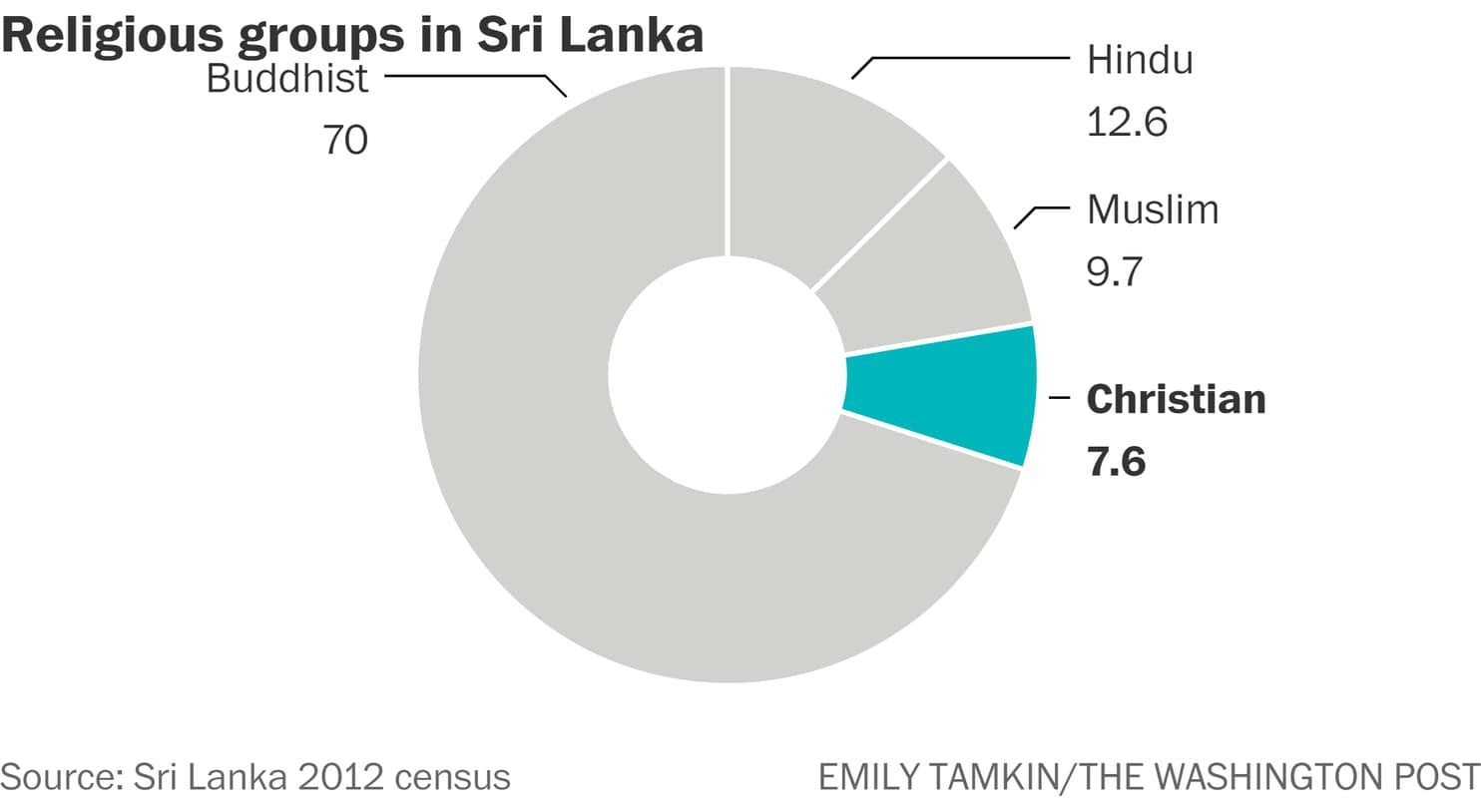
Blood spatter mark a wall and statue after a blast at St. Sebastian’s Church in Negombo, Sri Lanka, on Sunday. (AP)
But the suicide bombings on the holiest day of the Christian calendar, when churches see their highest attendance of the year, were widely viewed as targeting Sri Lanka’s small Christian community, a minority that regularly faces discrimination.
Fewer than 8 percent of the roughly 20 million people in Sri Lanka are Christian (the vast majority of them Roman Catholic). Seventy percent are Buddhist,according to the country’s 2012 census, 12.6 percent are Hindu and 9.7 percent are Muslim.
The decades-long civil war that ended in 2009 was more about nationalism and ethnicity than religion. Sri Lanka’s majority Sinhalese are largely Buddhists; the Tamil separatists were mostly Hindu, but some were Catholics. The Christian population today is split between the Sinhalese and the Tamils.
 Religious groups in Sri Lanka (Emily Tamkin/The Washington Post)
Religious groups in Sri Lanka (Emily Tamkin/The Washington Post)Violent attacks on this scale against churches are without precedent in Sri Lanka. The Christian minority, however, does face violence and discrimination.
Human rights activist Ruki Fernando said on Twitter that church services across the country have faced some sort of disruption in each of the past 11 Sundays. Last year, the National Christian Evangelical Alliance of Sri Lanka reported 86 verifiable cases of discrimination, threats and violence against Christians. Before Sunday’s attacks, 26 such incidents had occurred this year, including the disruption of a Sunday service by Buddhist monks.
But the Christian community isn’t alone in being targeted. The Muslim minority, too, is persecuted. In 2013, a Buddhist mob attacked a mosque in Colombo, injuring 12. Amarnath Amarasingam, a senior research fellow at the Institute for Strategic Dialogue, noted on Twitter that rumors of radicalization of Muslims and of extremist groups tied to outside funding have been used as an excuse by some in the majority to attack Muslims.
Sunday’s attacks were not thought to be carried out by Buddhist extremists. They broke from previous patterns of violence and discrimination in two significant ways: The targeting of churches was new, but so was the apparent targeting of foreign tourists — if indeed they were the targets in the hotel explosions — which was rare during the country’s decades of violence.
The government, meanwhile, has called for the people of Sri Lanka to come together.
“In the midst of this tragedy, it’s reassuring to see the outpouring of solidarity as people donate blood. Buddhist, Christian, Hindu, Muslim & others are donating because we are humans with the same blood & same spirit of compassion,” tweeted Finance Minister Mangala Samaraweera. “Nobody can deny our common humanity.”